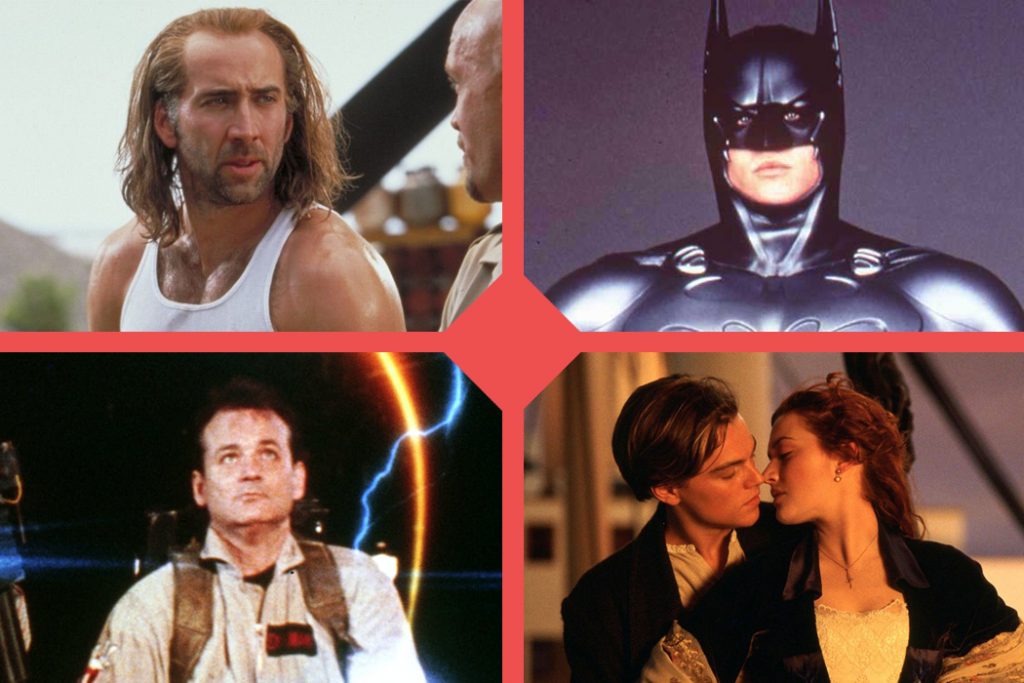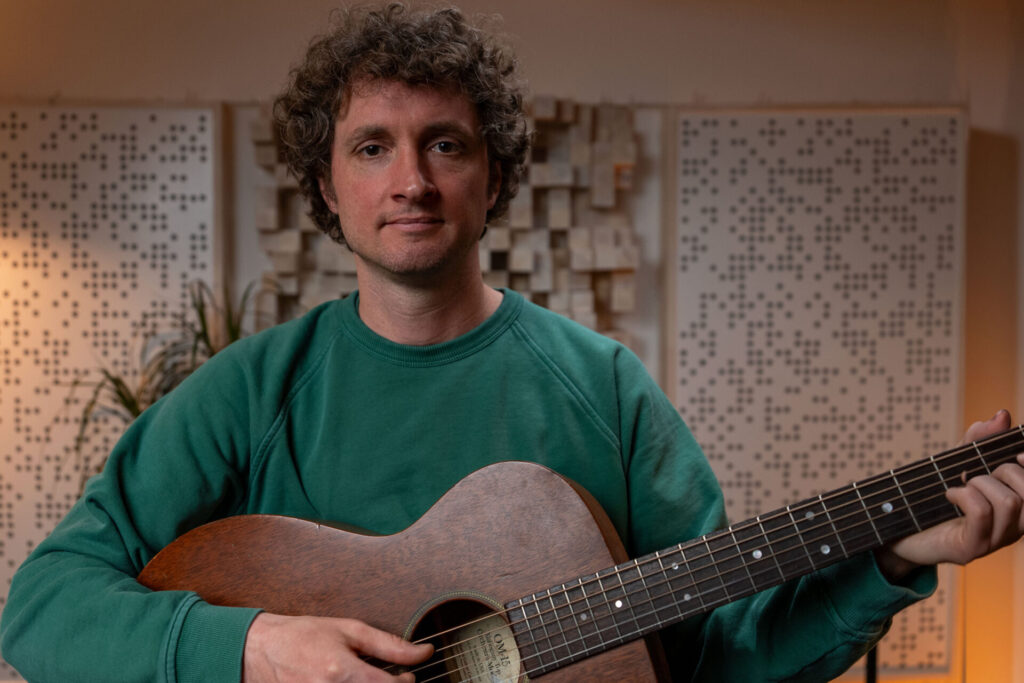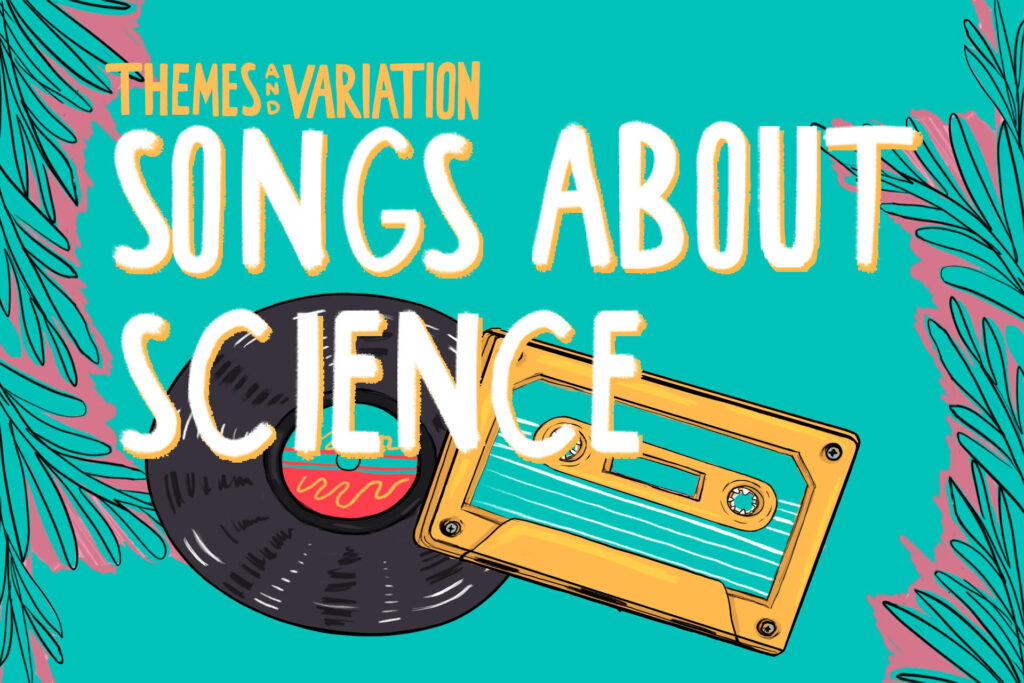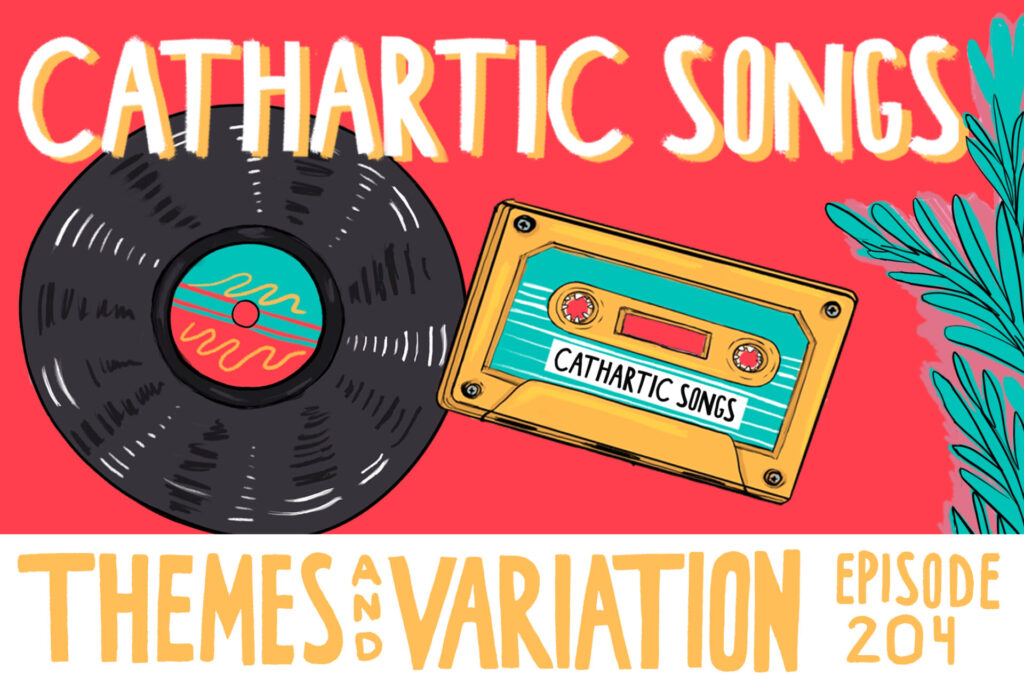+ Soundfly’s Intro to Scoring for Film & TV is a full-throttle plunge into the compositional practices and techniques used throughout the industry, and your guide for breaking into it. Preview for free today!
Though not quite as prevalent as they once were, movie theme songs used to be a big, big deal. Ostensibly existing as something of an advertisement for the movie they were connected to, their fame sometimes even outstripped the movie itself.
Nevertheless, these songs — and the movies to which they are inexorably connected — have perpetuated in the public consciousness for decades afterwards. Every kid, their parents, and their cousin’s nephew’s dog, knows the lyrics to “Let It Go” from Disney’s Frozen (however reluctantly) by heart. The Bee Gees’ monster hit “Stayin’ Alive” is still used to time chest compressions for CPR.
And almost anyone in the northern hemisphere can recognize it when you hum the first few bars of the Harry Potter, Indiana Jones, or Jurassic Park themes. (Try it, it’s fun!)
Speaking of which…
We recently launched a video on our YouTube channel that teaches any musician how to memorize every common note interval using only movie themes from John Williams scores. It’s…pretty rad. Musicians, composers, and curiosity-junkies, check it out and subscribe if you like that sorta thing!
But in this post, we wanted to explore the stories behind a few all time favorite movie theme songs; whether you’re just curious or brushing up for a movie trivia night soon.
Celine Dion – “My Heart Will Go On”
There is no possible way to overstate how massive James Cameron’s Titanic was when it was released on December 19th, 1997. Its popularity was only possibly rivalled by the theme song, Celene Dion’s epic “My Heart Will Go On.” But that song very nearly did not even make it into the movie…
James Cameron was dead set against ending his three hour epic with a pop song. In his eyes, it was a dramatic, historical drama — he’s purported to have quipped “Would you put a pop song at the end of Schindler’s List?”
The movie — which had already been pushed back due to a troubled production phase, and a significant overblow in the budget — was making the studio heads nervous. They pressured Cameron to try to add value to the movie with a theme song, looking for any way to recoup their investment they could.
The film’s composer, James Horner, went off and wrote the song with lyricist Will Jennings. He pitched it to Dion, who didn’t like the song at first. Yet, her husband and manager convinced her to do a demo, and she laid down the vocals in one take. Miraculously, it’s the demo version — albeit with some added instrumentals and layers — is exactly what was released with the movie. The rest is, as we all know, history.
Ray Parker Jr. – “Ghostbusters Theme”
Before anyone even knew the answer to the iconic line “Who you gonna call?”, the movie studio scoured through over sixty submissions, but none of them were a fit.
One of those sixty submissions written by writers Glenn Hughes (of Deep Purple), Pat Thrall, and Peter Aykroyd (brother of actor, Dan Aykroyd) recently surfaced online. You can hear that here. According to Thrall, the guy that mixed the song had been awake for a week on cocaine (it definitely shows).
In fact, many famous musicians were approached to do the theme song, including Fleetwood Mac’s Lindsey Buckingham. He turned down the opportunity, having just done “Holiday Road” for National Lampoon’s Vacation and “Time Bomb Town” for Back to the Future. He simply didn’t want to get pigeonholed.
Improbably, the task fell to Ray Parker, Jr. — who had basically retired a well-adored singer of romance songs. Parker had two days to come up with a hit song for the movie. The music came quickly, but he was stumped on how to work “Ghostbusters” into the lyrics. A TV commercial gave him the answer: Who you gonna call? He did a 25-second demo and handed it to the messenger service.
The film’s director Ivan Reitman called him at 4am, claiming he loved it and had already put it into the film — exactly as is. The 25-second clip was spliced into a 4-minute song, and a legendary theme song was born.
LeAnn Rimes – “How Do I Live”
This mega hit appeared at the end of the 1997 Nicolas Cage flick Con Air — a movie about dangerous escaped convicts. Cage plays a (sort of) wrongfully convicted man just fighting to go home while maybe keeping the bad guys from escaping and causing havoc in the meantime.
The studio was looking for a song that would lend the end scene sequence some emotional heft, so they tapped Diane Warren — multi-award-winning mega-ballad queen, and one of the greatest songwriters of our time. Initially, the studio asked vocalist LeAnn Rimes to cut the song; the then 15-year old was fresh off her breakout country hit “Blue,” but was eyeing pop crossover status. Rimes’s label loved the song, and cut it.
Unfortunately, the studio felt her version was “too poppy” and immature sounding, and sought out another artist; country legend Trisha Yearwood. By that point, Rimes had already recorded a music video — a fact which perplexed Yearwood, considering she had no prior knowledge of Rimes cutting the song. The end result was both artists releasing their versions of the same song, on the same day.
Understandably, there was beef, though both artists were careful not to directly criticize each other, the frustration was evident. The industry (and fans alike) ate it up however. Radio stations pitted both songs against each other, making both instant hits. An unauthorized mix combined both songs, in a sort of duet. Things came to a head when both Yearwood and Rimes were nominated for a Grammy Award for the same song; the first time in history any such thing had ever happened. To add insult to injury, Rimes performed the song live on the Grammys… and Yearwood won. Awkward!
Seal – “Kiss From a Rose”
While U2 was technically tasked with writing the theme song to Batman Forever, the breakout song of the soundtrack — and more popularly and commercially associated with the movie — was no doubt Seal’s transformative “Kiss From a Rose.” To say the song had a winding path to success is an understatement. Originally penned by Seal in the late ’80s, well before he had ever secured himself a record deal, he did a worktape and tossed it aside.
When his debut album came out in 1991, he didn’t even consider it; in fact, he was reportedly embarrassed by it. Seal then reluctantly considered it for his second album, and still nearly didn’t include it then. The song was ultimately released in the UK, where it was kind of a bomb — quickly dropping off the charts and being forgotten.
The story doesn’t end there, however. Batman Forever producer Joel Schumacher called Seal, saying he was a fan of the artist. They were looking for a song over a love scene in his upcoming movie, and wanted to know if Seal had anything that fit. “Kiss From a Rose” was submitted, but didn’t quite work with the intended scene. Schumacher loved it so much, though, that he had it play over the end credits.
The song went on to become a massive hit in the US, earning Seal three Grammy Awards and catapulting his career into overdrive. For a time at least, peaking sometime in the early 2000s, epic, even cheesy theme songs were as vital to blockbusters as popcorn. Changes in public taste and marketing may have put them on the back burner in recent years, but they’re still a blast to sing along to!
Have you checked out Soundfly’s courses yet?
Continue your learning with hundreds of lessons by boundary-pushing, independent artists like Kimbra, Ryan Lott & Ian Chang (of Son Lux), Jlin, Elijah Fox, Kiefer, Com Truise, The Pocket Queen, and RJD2. And don’t forget to try out our intro course on Scoring for Film & TV.




